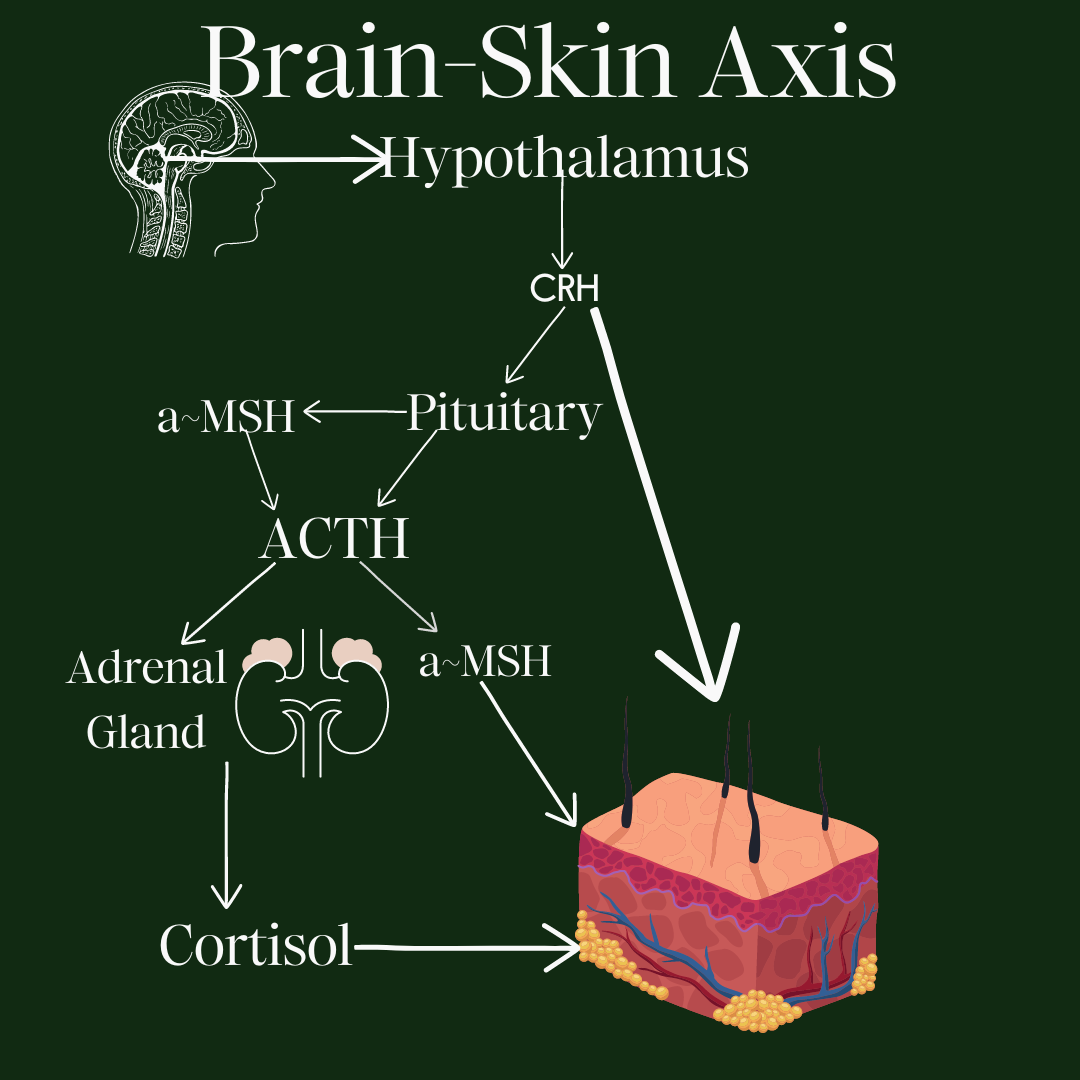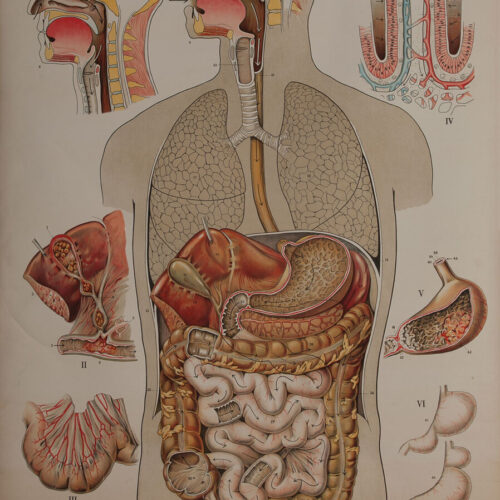For the first year of having melasma my spots were light and small. My doctor told me this was normal, that a lot of women get melasma when they quit taking birth control. I was a statistic.
Of course, stopping birth control wasn’t enough to reverse the condition. Since the doctor told me there was nothing she could do, I began trying to take matters into my own hands.
First I tried lasers, then chemical peels. Nothing. Neither produced positive results, and in some cases my skin ended up more inflamed. This led me to juice cleansing, and I even tried high doses of MSM. Supposedly some people had used MSM to reverse their melasma, but I saw no results.
I became despondent, I was running out of options. I hated the face looking back at me in the mirror. I hated that I couldn’t recognize myself. I wasn’t seeing who I was used to seeing.
To top it off I was starting to deal with some intense personal and professional issues. I’d prefer not to get into details here, suffice it to say, my life was spiraling out of control on multiple levels. I couldn’t sleep, my heart was constantly racing, and eventually I began to experience panic attacks.
As if things couldn’t possibly get any worse, my melasma spots were darkening and they were spreading. It was like the stress I was feeling inside was being made visible on my skin. The less I recognized myself and the more difficult my life became, the more the fans of my melasma were flamed.
Though it is not yet conventionally accepted, there is research suggesting stress can actually cause melasma. I personally believe this to be true. It is well understood that hormonal response to chronic stress can cause hyperpigmentation generally. Even if it isn’t a primary factor, stress is undoubtedly a cofactor of melasma, which I experienced firsthand.
Stress is the feeling of worry or agitation from mental or emotional tension caused by a challenging situation. When the negative mental state of worry, frustration, anxiety, fear, or resentment becomes too high or prolonged, the adrenal gland releases the primary stress hormone cortisol, causing heart rate to elevate, body temperature to rise, irritability, restlessness, and other sensations.
Much of this article is focused on cortisol, one of the three primary hormones that must be in balance for systemic harmony (the other two being estrogen and thyroid). My first functional medicine doctor once told me: “Think of them as a 3-legged table. If one leg broke, the table would not stand upright - If one leg is down, it drags the others down with it.”
Brain-Skin Connection.
We discussed the gut-brain-skin connection in the The Gut-Skin Connection and we talked about how stress affects melasma in the Defining Melasma article. The brain-skin connection plays a significant role in conditions like psoriasis, acne, dermatitis, alopecia, tumors, and melasma. The HPA Axis is a cascade of endocrine pathways that are responsible for several physiological processes in the body.
One of the main functions of the HPA axis is the regulation of stress response. Stress acts directly on the skin through various pathways and plays a significant role in skinflammation. The following is a quick breakdown of the process in ‘medtalk’:
The hypothalamus makes a hormone called corticotropin-releasing hormone (CRH) that tells the pituitary gland to make alpha-melanocyte stimulating hormone (a~MSH) and adrenocorticotropin-releasing hormone (ACTH). ACTH then further converts to a~MSH the hormone that regulates the pigmentation in the skin and hair. ACTH also signals to the adrenal glands for the release of cortisol. The skin also has CRH receptors called CRH-R1 which are expressed in the epidermis, dermis, and subcutaneous tissue parts of the skin. Furthermore, ACTH secretes pro-inflammatory signals to stimulate cortisol production through the melanocortin-2 receptor and simultaneously stimulates pro-inflammatory cytokine interleukin-18 in epidermal keratinocytes.

Several mechanisms act directly on the skin via CRH receptors, ACTH, and its relationship with a~MSH, cortisol, and pro-inflammatory cytokines IL-18 all of which act directly on the skin and play an important role in melasma. ACTH also increases tyrosinase activity, which is a primary factor of melasma. UVB irradiation also increases ACTH.
As you see this is a very important part of the development of melasma which includes UVB exposure and stress in combination that act directly on the skin causing DNA damage and changes in pigmentation.
Long-term stress can damage your skin.
Gaba.
Gamma-aminobutyric acid (GABA) is a naturally occurring amino acid and is a primary neurotransmitter in the brain. It reduces the nerve cell’s ability to send and receive messages in the central nervous system. Low levels of GABA are associated with stress, anxiety, and insomnia. The GABAergic system calms the HPA axis and has a bidirectional cross-talk with the gut-brain axis.
Conclusion.
Learning how to manage stress is an essential tool that benefits you throughout life, and supports your skin health and your aging process. It is one of the most vital self-care routines you can give yourself.
Leave a comment, and let me know how this process is going for you.
References:
https://journals.physiology.org/doi/abs/10.1152/ajpcell.00147.2022
https://www.sciencedirect.com/science/article/pii/S0022202X15372882
https://www.britannica.com/science/melanocyte-stimulating-hormone
https://core.ac.uk/download/pdf/82113534.pdf
https://www.ncbi.nlm.nih.gov/pmc/articles/PMC4082169/
https://pubmed.ncbi.nlm.nih.gov/26776957/
https://www.herbalgram.org/resources/herbalgram/issues/56/table-of-contents/article2333/
https://www.ncbi.nlm.nih.gov/pmc/articles/PMC4270108/
https://www.ncbi.nlm.nih.gov/pmc/articles/PMC6750292/
https://pubmed.ncbi.nlm.nih.gov/24497737/
https://pubmed.ncbi.nlm.nih.gov/28471731/
https://pubmed.ncbi.nlm.nih.gov/19789214/
https://www.hindawi.com/journals/np/2020/8858415/
https://bioclinicnaturals.com/wp-content/uploads/2016/06/CH-GABA.pdf



Another wonderful and helpful article. Thank you for all these. Big eye opener. I personally believe stress is a big factor in this.those supplements look really interesting. Something I will be looking in to. Thank you again I hope you are keeping well xx
Claire,
Yes, it is a huge factor. You can see the domino effect throughout these articles. It’s all connected and it’s no wonder the condition is incredibly stubborn. Thank you, Claire, I hope the same for you.
Have you heard of the supplement phosphatidylserine? I was thinking it would be beneficial as it lowers cortisol. I’ve tried all the adaptogens and haven’t found one to work well enough. Do you think lowering cortisol would help?
Hi Pricilla,
Absolutely. I will add phosphatidylserine to this post, I completely forgot about that one. Adaptogens have to be taken for an extended period to see results. Like most supplements, they do take time to work.